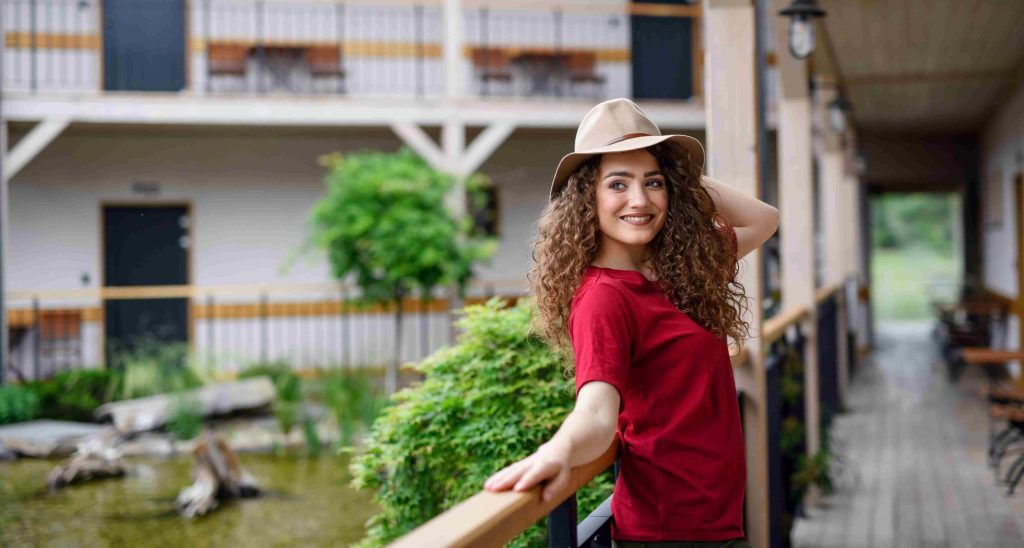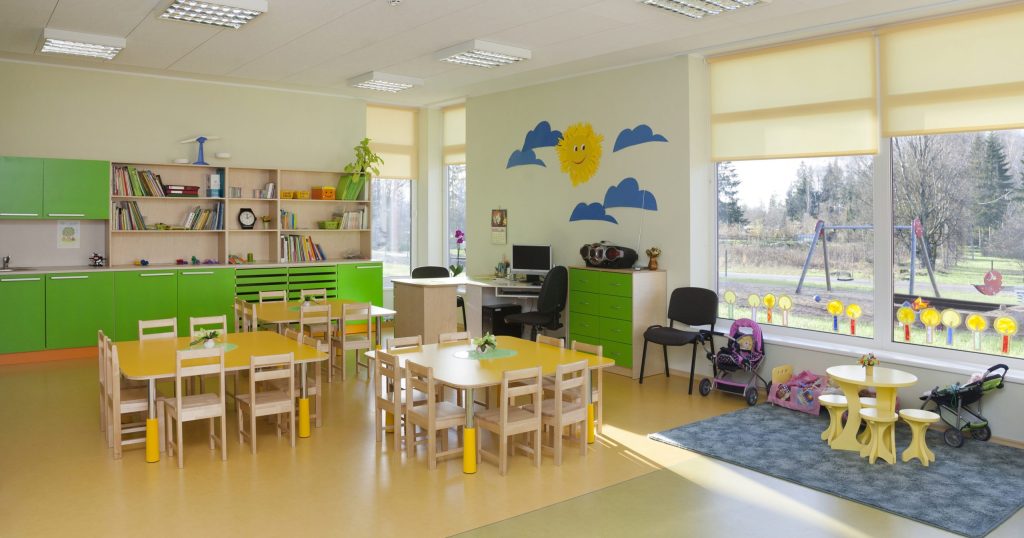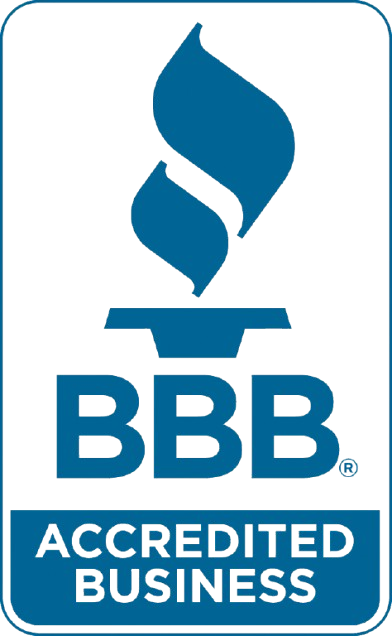I have a virtual tour on my website and would like an audit.
I don't have a virtual tour yet, would love a demo to see how it works.
As the hospitality industry navigates an increasingly competitive digital landscape, hotels and resorts face mounting pressure to differentiate themselves and drive direct bookings. Property managers are confronting significant obstacles, including overwhelming reliance on Online Travel Agencies (OTAs), rising commission costs, and the challenge of conveying their property’s unique ambiance through traditional marketing channels. In this article, we will explore the key pain points hotels are facing and provide data-backed strategies to help hospitality leaders overcome these challenges and boost direct bookings in 2025.

The Hospitality Landscape: Challenges and Opportunities
- Rising OTA Dependence:
Many hotels have become overly reliant on third-party booking platforms, with OTAs capturing up to 30% of revenue through commissions. According to Phocuswright research, OTA bookings continue to dominate the market, making it increasingly difficult for properties to maintain healthy profit margins.
- Increased Competition:
With the proliferation of boutique hotels, vacation rentals, and alternative accommodations like Airbnb, competition for guests has intensified. Hotels must differentiate themselves and provide compelling reasons for travelers to book directly with their property.
- Low ROI on Traditional Marketing:
Traditional marketing methods, such as print advertisements and travel magazines, are yielding diminishing returns. Hotels are seeking more cost-effective and targeted approaches to reach prospective guests and inspire booking confidence.
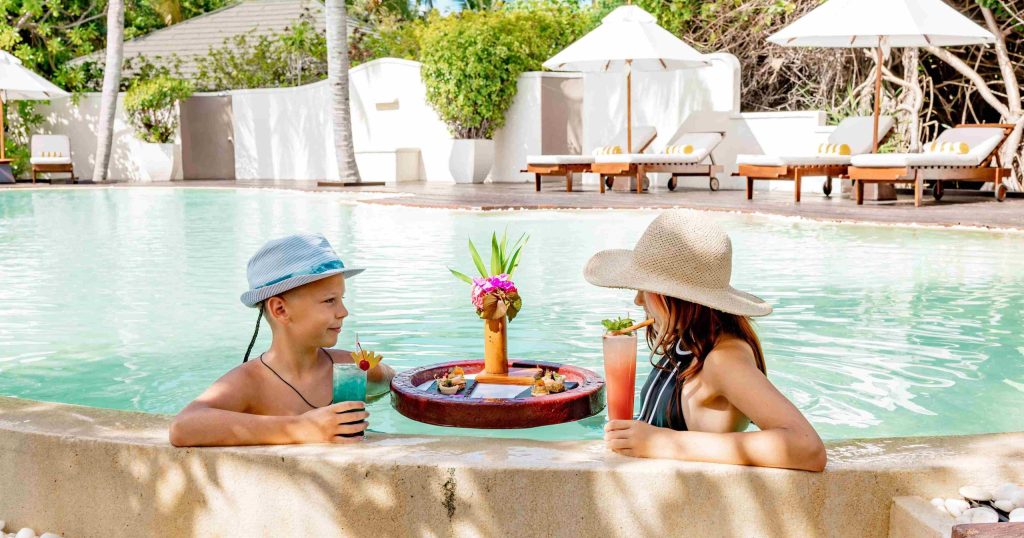
Strategies for Boosting Direct Bookings
1. Personalized Guest Communication:
– Tailor pre-arrival communication to address specific guest preferences and travel purposes.
– Utilize CRM data to understand guest behavior and craft resonant messaging.
2. Leveraging Social Media Platforms:
– Actively engage on platforms like Instagram and TikTok to showcase property features and guest experiences.
– Share authentic content, guest testimonials, and behind-the-scenes glimpses of hotel amenities.
– Invest in targeted social media advertising to reach travelers in the research phase.
3. Offering Competitive Rate Parity and Perks:
– Provide exclusive benefits for direct bookings, such as room upgrades, late checkout, or resort credits.
– Position direct booking as the best value proposition compared to OTA listings.
4. Enhancing Guest Experience and Loyalty:
– Implement loyalty programs, personalized service, and memorable experiences.
– Focus on retaining guests to build a stable base of repeat visitors and brand advocates.
5. Embracing Technological Innovations:
– Incorporate AI-powered chatbots and booking engines to streamline the reservation process.
– Provide instant responses to inquiries and personalize the guest journey from first contact.
6. Leveraging Interactive Virtual Tours:
– Offer immersive virtual property experiences to engage prospective guests.
– Showcase accommodations, amenities, dining venues, and event spaces in an interactive format.
– Build booking confidence and set accurate expectations before arrival.
The Power of Virtual Tours in Hospitality Marketing
Virtual tours have emerged as a game-changer in the hospitality industry. By providing an immersive and interactive experience, virtual tours allow prospective guests to explore room types, amenities, and facilities, helping them envision their stay and make confident booking decisions.
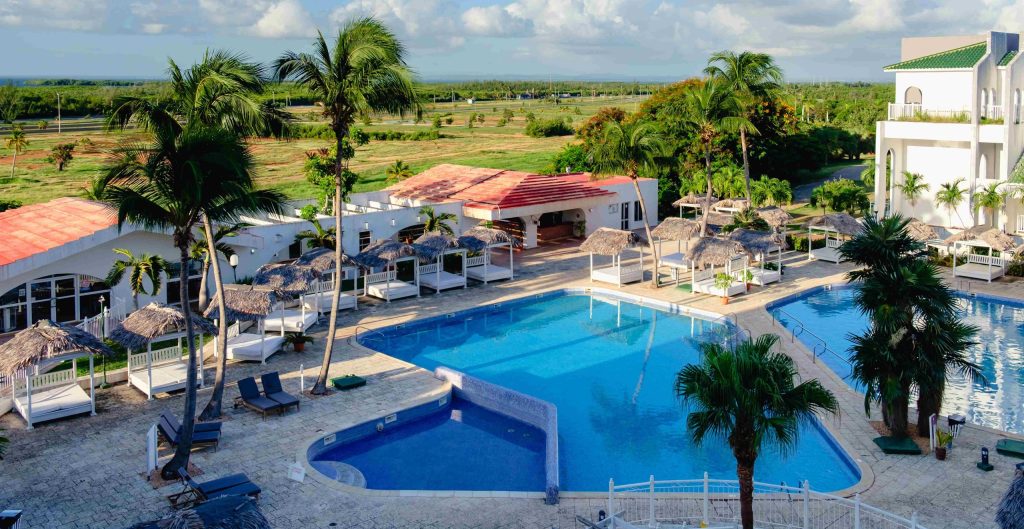
Benefits of Virtual Tours
1. Increased Direct Bookings:
Hotels with virtual tours report a 16% increase in direct bookings. By showcasing your property authentically, you build trust and encourage guests to book directly rather than through OTAs, saving significant commission costs.
2. Higher Engagement:
Interactive virtual tours captivate prospective guests, encouraging them to spend more time exploring your property’s offerings. Research shows that visitors engage with virtual tours 5-10 times longer than static photo galleries, leading to stronger emotional connections.
3. Reduced Cancellations:
Virtual tours set accurate expectations about room sizes, layouts, and amenities. When guests know exactly what to expect, cancellation rates drop significantly, leading to more predictable revenue and reduced operational disruption.
4. 24/7 Marketing Presence:
Virtual tours provide a cost-effective alternative to traditional marketing. Your property becomes accessible for exploration anytime, anywhere, allowing international travelers and time-zone-challenged bookers to tour at their convenience.
5. Competitive Differentiation:
Virtual tours can be personalized to highlight your unique selling propositions—whether it’s your spa facilities, oceanfront location, or boutique design aesthetic. This customized approach enhances engagement and increases booking likelihood.
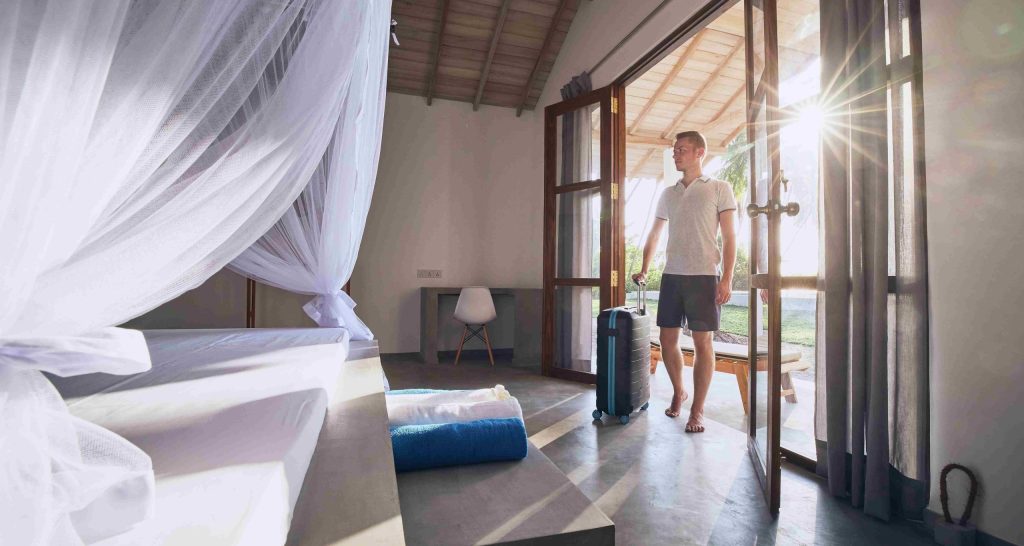
Best Practices for Hotel Virtual Tours
- Showcase all room categories and suites with accurate representations
- Highlight signature amenities like pools, spas, fitness centers, and restaurants
- Feature event spaces and meeting facilities for corporate and wedding planners
- Include guest testimonials and authentic property stories
- Offer interactive elements, such as 360-degree views and clickable amenity details
- Provide multilingual support to cater to international travelers
- Integrate seamlessly with your booking engine for frictionless reservations
- Optimize for mobile devices to ensure accessibility across all platforms
- Include clear calls-to-action to encourage direct booking inquiries
- Regularly update content to reflect seasonal changes and property improvements

Conclusion
In the face of evolving challenges in the hospitality landscape, hotels must embrace innovative strategies to drive direct bookings and reduce OTA dependence. By leveraging personalized communication, social media engagement, competitive booking incentives, enhanced guest experiences, and technological innovations, properties can position themselves for sustained success.
Among these strategies, interactive virtual tours stand out as a powerful tool to engage prospective guests, increase conversion rates, and build booking confidence. By creating immersive and transparent virtual experiences, hotels can differentiate themselves in a crowded market and establish meaningful connections with travelers before they arrive.
As hospitality leaders navigate the path to 2025, integrating virtual tours into their marketing arsenal will be a key driver of direct booking success and long-term profitability.
